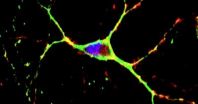(Press-News.org) CHAMPAIGN, lll. — Liberals and conservatives who are polarized on certain politically charged subjects become more moderate when reading political arguments in a difficult-to-read font, researchers report in a new study. Likewise, people with induced bias for or against a defendant in a mock trial are less likely to act on that bias if they have to struggle to read the evidence against him.
The new research, reported in the Journal of Experimental Social Psychology, is one of two studies to show that subtle manipulations that affect how people take in information can reduce political polarization. The other study, which explores attitudes toward a Muslim community center near the World Trade Center site, is described in a paper in the journal Social Psychological and Personality Science.
By asking participants to read an overtly political argument about capital punishment in a challenging font, the researchers sought to disrupt participants' usual attitudes to the subject, said graduate student Ivan Hernandez, who led the capital punishment/mock trial study with University of Illinois psychology professor Jesse Preston.
The intervention worked. Liberals and conservatives who read the argument in an easy-to-read font were much more polarized on the subject than those who had to slog through the difficult version. (Watch a video about the research.)
In a separate experiment, people were shown documents that praised or criticized the behavior of a defendant in a mock trial before they saw the (rather sketchy) evidence against him. As expected, those who read an unflattering account of the defendant's character were much more likely to convict him than those who read a more complimentary report. The two sides were far apart on their assessment of the evidence.
"But when people read a difficult-to-read summary of the evidence, then they became more moderate," Hernandez said. "Those with the positive impression suddenly thought maybe he could be guilty and gave more guilty verdicts than those who had read the evidence in a normal font. And the people who didn't like him started giving more not guilty verdicts relative to before."
The study is the first to use difficult-to-read materials to disrupt what researchers call the "confirmation bias," the tendency to selectively see only arguments that support what you already believe, Preston said. And it is the first to show that the intervention can moderate both deeply held political beliefs as well as newly formed biases, she said.
"Not only are people considering more the opposing point of view but they're also being more skeptical of their own because they're more critically engaging both sides of the argument," she said.
"We showed that if we can slow people down, if we can make them stop relying on their gut reaction – that feeling that they already know what something says – it can make them more moderate; it can have them start doubting their initial beliefs and start seeing the other side of the argument a little bit more," Hernandez said.
INFORMATION:
Editor's note: To contact Jesse Preston, email jlp@uillinois.edu. To reach Ivan Hernandez, email hernan27@illinois.edu.
The paper, "Disfluency Disrupts the Confirmation Bias," is available online and from the U. of I. News Bureau.
Jesse Preston lab page: http://uofisocialcognitionlab.x10.mx/Index.html
Psychology Department: http://www.psychology.illinois.edu/
Difficult-to-read font reduces political polarity, study finds
2012-11-02
ELSE PRESS RELEASES FROM THIS DATE:
Abstract thinking can make you more politically moderate
2012-11-02
CHAMPAIGN, lll. — Partisans beware! Some of your most cherished political attitudes may be malleable! Researchers report that simply answering three "why" questions on an innocuous topic leads people to be more moderate in their views on an otherwise polarizing political issue.
The research, described in the journal Social Psychological and Personality Science, explored attitudes toward what some people refer to as the ground zero mosque, an Islamic community center and mosque built two blocks from the site of the former World Trade Center in New York City. When the Islamic ...
Researchers 'watch' antibiotics attack tuberculosis bacteria inside cells
2012-11-02
NEW YORK (Nov. 1, 2012) -- Weill Cornell Medical College researchers report that mass spectrometry, a tool currently used to detect and measure proteins and lipids, can also now allow biologists to "see" for the first time exactly how drugs work inside living cells to kill infectious microbes. As a result, scientists may be able to improve existing antibiotics and design new, smarter ones to fight deadly infections, such as tuberculosis. The new study was published in today's early online edition of Science.
"The development of antibiotics has been stalled for several ...
Why seas are rising ahead of predictions
2012-11-02
Boulder, CO, USA – Sea levels are rising faster than expected from global warming, and University of Colorado geologist Bill Hay has a good idea why. The last official IPCC report in 2007 projected a global sea level rise between 0.2 and 0.5 meters by the year 2100. But current sea-level rise measurements meet or exceed the high end of that range and suggest a rise of one meter or more by the end of the century.
"What's missing from the models used to forecast sea-level rise are critical feedbacks that speed everything up," says Hay. He will be presenting some of these ...
Bird tree tells new tale of evolution
2012-11-02
Contact:
Arne Mooers, 778.782.3979, amooers@sfu.ca
Carol Thorbes, PAMR, 778.782.3035, cthorbes@sfu.ca END ...
Berkeley Lab scientists help develop promising therapy for Huntington's disease
2012-11-02
There's new hope in the fight against Huntington's disease. A group of researchers that includes scientists from the U.S. Department of Energy's Lawrence Berkeley National Laboratory (Berkeley Lab) have designed a compound that suppresses symptoms of the devastating disease in mice.
The compound is a synthetic antioxidant that targets mitochondria, an organelle within cells that serves as a cell's power plant. Oxidative damage to mitochondria is implicated in many neurodegenerative diseases including Alzheimer's, Parkinson's, and Huntington's.
The scientists administered ...
The ins and outs of in-groups and out-groups
2012-11-02
We humans organize ourselves in myriad kinds of social groups, from scout troops and sports teams to networks of friends, colleagues, or classmates. But how do these social groups work? How do we decide whom to trust and whom to follow? And how do we deal with people that don't seem to fit the norms of our social groups?
New research published in Psychological Science, a journal of the Association for Psychological Science, explores these issues by examining various facets of social perception and behavior.
The Herding Hormone: Oxytocin Stimulates In-Group Conformity
Mirre ...
Bigger human genome pool uncovers rarer variants
2012-11-02
Contact:
Iman Hajirasouliha, 778.782.7040, 604.418.4834 (cell), imanh@sfu.ca
Carol Thorbes, PAMR, 778.782.3035, cthorbes@sfu.ca
Flickr: http://at.sfu.ca/skirFz END ...
UC Davis scientists identify new target for lung cancer treatment
2012-11-02
(SACRAMENTO, Calif.) — A team of UC Davis investigators has discovered a protein on the surface of lung cancer cells that could prove to be an important new target for anti-cancer therapy. A series of experiments in mice with lung cancer showed that specific targeting of the protein with monoclonal antibodies reduced the size of tumors, lowered the occurrence of metastases and substantially lengthened survival time. The findings will be published in the November issue of Cancer Research.
"Lung cancer continues to be one of the biggest killers in the United States, and ...
How the negative trumps the positive in politics
2012-11-02
Negatively framed political attitudes ("I don't like Obama") are stronger than positively framed attitudes ("I like Romney"), and this effect is strengthened when people think more deeply about the issues involved.
That is the finding of a paper published in the latest issue of the British Journal of Social Psychology by George Bizer, a psychology professor at Union College in Schenectady, N.Y.
Bizer and his co-authors Iris Žeželj (University of Belgrade) and Jamie Luguri (Yale University) presented participants with information about two fictional (though ostensibly ...
New light on the genetic basis of inflammatory diseases
2012-11-02
In one of the largest studies of its kind ever conducted, an international team of scientists has thrown new light on the genetic basis of the inflammatory bowel diseases (IBD). Crohn's disease and ulcerative colitis, the two most common forms of IBD, are chronic inflammatory digestive disorders affecting 230,000 Canadians. Dr. John Rioux, researcher at the Montreal Heart Institute and Associate Professor of Medicine at the Université de Montréal, is one of the researchers who have identified 71 genetic regions newly associated with inflammatory bowel disease (IBD), increasing ...



